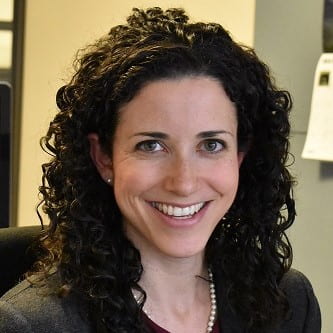Tuesday, March 22nd, 2022
12:00 – 1:00 p.m. ET
via Zoom
We were pleased to invite you to join the Insitute for International Economic Policy, the Climate and Health Institute, and the Department of Environmental and Occupational Health for a panel discussing “Health in the Social Cost of Carbon: Recent Advances to Fill a Critical Gap.” This event featured speakers Kevin Cromar of NYU, Noah Scovronick of Emory University, and Tamma Carleton of UCSB. IIEP Director Jay Shambaugh provided welcoming remarks, and Climate and Health Institute Director Susan Anenberg moderated the discussion.
The social cost of carbon is commonly used in regulatory cost-benefit analysis to characterize the economic damage that would result from each ton of carbon dioxide emitted. An important cost of greenhouse gas emissions is the profound public health consequences of climate change, including disease and mortality from extreme heat, extreme weather events, worsened air pollution, expanded habitats for disease-carrying mosquitoes and ticks, increased aeroallergens, and impacts to water and food supply. Currently, these health consequences are represented in the social cost of carbon in incomplete, indirect, or cursory ways. This panel of leading researchers will describe recent advances to fill this critical gap and ensure that the social cost of carbon adequately reflects the present and future public health burden stemming from a global climate altered by anthropogenic greenhouse gas emissions.
About the Speakers:
 Kevin Cromar is the Director of the Health, Environment, and Policy Program at the Marron Institute of Urban Management and an Associate Professor of Environmental Medicine and Population Health at New York University Grossman School of Medicine. His research program works at the intersection of scientific research and public policy in order to generate the knowledge needed to improve health and quality of life. He has a BS in Neuroscience from Brigham Young University and an MS and PhD in Environmental Health Science from New York University.
Kevin Cromar is the Director of the Health, Environment, and Policy Program at the Marron Institute of Urban Management and an Associate Professor of Environmental Medicine and Population Health at New York University Grossman School of Medicine. His research program works at the intersection of scientific research and public policy in order to generate the knowledge needed to improve health and quality of life. He has a BS in Neuroscience from Brigham Young University and an MS and PhD in Environmental Health Science from New York University.
 Noah Scovronick is a professor of Environmental Health at the Rollins School of Public Health at Emory University. His areas of interest include air pollution, climate and health, and environmental health. He has a BS from Emory University, a MS from University of Cape Town, an MS and a PhD from the London School fo Hygiene and Tropical Medicine.
Noah Scovronick is a professor of Environmental Health at the Rollins School of Public Health at Emory University. His areas of interest include air pollution, climate and health, and environmental health. He has a BS from Emory University, a MS from University of Cape Town, an MS and a PhD from the London School fo Hygiene and Tropical Medicine.
 Tamma Carleton is a professor of Economics at the Bren School of Environmental Science & Management at UC Santa Barbara, an affiliate of the Climate Impact Lab, a research associate at the Environmental Markets Lab, and a faculty research fellow at the National Bureau of Economic Research. She joined Bren after a postdoc at the Energy Policy Institute at the University of Chicago. She has a PhD in Agricultural & Resource Economics at UC Berkeley, where she was an EPA STAR Fellow and a Doctoral Fellow in the Global Policy Lab at the Goldman School of Public Policy. She is an environmental and resource economist, focusing on questions at the intersection of environmental change and economic development.
Tamma Carleton is a professor of Economics at the Bren School of Environmental Science & Management at UC Santa Barbara, an affiliate of the Climate Impact Lab, a research associate at the Environmental Markets Lab, and a faculty research fellow at the National Bureau of Economic Research. She joined Bren after a postdoc at the Energy Policy Institute at the University of Chicago. She has a PhD in Agricultural & Resource Economics at UC Berkeley, where she was an EPA STAR Fellow and a Doctoral Fellow in the Global Policy Lab at the Goldman School of Public Policy. She is an environmental and resource economist, focusing on questions at the intersection of environmental change and economic development.
About the Moderator:
 Susan Anenberg is the Director of the Climate and Health Institute and an Associate Professor of Environmental and Occupational Health and of Global Health at the George Washington University Milken Institute School of Public Health. Dr. Anenberg’s research focuses on the health implications of air pollution and climate change, from local to global scales. She currently serves on the U.S. Environmental Protection Agency’s Science Advisory Board and Clean Air Act Advisory Committee, the World Health Organization’s Global Air Pollution and Health Technical Advisory Group, and the National Academy of Science’s Committee to Advise the U.S. Global Change Research Program. She also serves as Secretary of the GeoHealth section of the American Geophysical Union. Previously, Dr. Anenberg was a Co-Founder and Partner at Environmental Health Analytics, LLC, the Deputy Managing Director for Recommendations at the U.S. Chemical Safety Board, an environmental scientist at the U.S. Environmental Protection Agency, and a senior advisor for clean cookstove initiatives at the U.S. State Department.
Susan Anenberg is the Director of the Climate and Health Institute and an Associate Professor of Environmental and Occupational Health and of Global Health at the George Washington University Milken Institute School of Public Health. Dr. Anenberg’s research focuses on the health implications of air pollution and climate change, from local to global scales. She currently serves on the U.S. Environmental Protection Agency’s Science Advisory Board and Clean Air Act Advisory Committee, the World Health Organization’s Global Air Pollution and Health Technical Advisory Group, and the National Academy of Science’s Committee to Advise the U.S. Global Change Research Program. She also serves as Secretary of the GeoHealth section of the American Geophysical Union. Previously, Dr. Anenberg was a Co-Founder and Partner at Environmental Health Analytics, LLC, the Deputy Managing Director for Recommendations at the U.S. Chemical Safety Board, an environmental scientist at the U.S. Environmental Protection Agency, and a senior advisor for clean cookstove initiatives at the U.S. State Department.
Introductory Remarks:
 Jay Shambaugh is Professor of Economics and International Affairs, and Director of the Institute for International Economic Policy at the Elliott School of International Affairs, George Washington University. His area of research is macroeconomics and international economics. He has had two stints in public service. He served as a Member of the White House Council of Economic Advisors from 2015-2017. Earlier, he served on the staff of the CEA as a Senior Economist for International Economics and then as the Chief Economist. He also spent 3 years as the Director of the Hamilton Project at the Brookings Institution. Jay is also a Faculty Research Fellow at the NBER and Non-Resident Senior Fellow in Economic Studies at Brookings. Prior to joining the faculty at George Washington, Jay taught at Georgetown and Dartmouth and was a visiting scholar at the IMF. He received his Ph.D. in economics from the University of California at Berkeley, an M.A. from the Fletcher School at Tufts, and a B.A. from Yale University.
Jay Shambaugh is Professor of Economics and International Affairs, and Director of the Institute for International Economic Policy at the Elliott School of International Affairs, George Washington University. His area of research is macroeconomics and international economics. He has had two stints in public service. He served as a Member of the White House Council of Economic Advisors from 2015-2017. Earlier, he served on the staff of the CEA as a Senior Economist for International Economics and then as the Chief Economist. He also spent 3 years as the Director of the Hamilton Project at the Brookings Institution. Jay is also a Faculty Research Fellow at the NBER and Non-Resident Senior Fellow in Economic Studies at Brookings. Prior to joining the faculty at George Washington, Jay taught at Georgetown and Dartmouth and was a visiting scholar at the IMF. He received his Ph.D. in economics from the University of California at Berkeley, an M.A. from the Fletcher School at Tufts, and a B.A. from Yale University.
